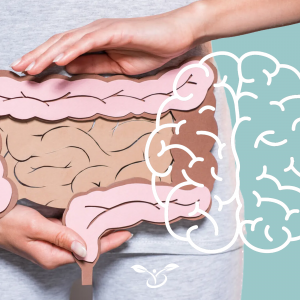Probiotics: a possible treatment for hay fever
Probiotics: a possible treatment for hay fever
Hay fever, also known as allergic rhinitis, is a common condition caused by a hypersensitivity to allergens such as pollen, grass or dust mites. Many people around the world suffer from it. It can cause annoying symptoms such as sneezing, itchy eyes, nasal congestion and runny nose. For people suffering from hay fever, daily life can sometimes be challenging, especially during hay fever season.
Traditional treatments
Tradional treatments for hay fever include the use of antihistamines, nasal sprays and desensitization therapy. These methods can be effective in reducing symptoms, but they are not always sufficient to completely relieve symptoms. In addition, some of these treatments may have side effects, such as drowsiness or dry mouth. But what about the use of probiotics?
The role of probiotics
Probiotics are live microorganisms that can be beneficial to health when taken in adequate amounts. They are often associated with improving gut health, but there is growing evidence that probiotics may also have a positive effect on the immune system and allergic conditions such as hay fever.
How can probiotics help with hay fever?
The immune system plays a crucial role in the development of allergic reactions. In people with hay fever, the immune system is overactive and overreacts to harmless substances such as pollen. Probiotics can potentially help regulate the immune system and reduce sensitivity to allergens.
A study published in the journal “International Archives of Allergy and Immunology” examined the effect of probiotics on hay fever. The researchers divided the participants into two groups, with one group receiving probiotics and the other a placebo. After 8 weeks, the group that had taken probiotics was found to have significantly fewer symptoms such as sneezing, itchy eyes and stuffy nose.
One possible explanation for this effect is that probiotics can reduce the production of pro-inflammatory substances such as histamine. Histamine is an important mediator in allergic reactions, and inhibiting its production can help reduce symptoms.
In addition, probiotics can improve gut health, which in turn can lead to better immune function. Healthy gut flora can regulate the immune response and reduce sensitivity to allergens.
Choosing the right probiotics
If you have hay fever and are considering probiotics, it is important to choose the right probiotics. Not all probiotics are the same, and different strains can have different effects. It is advisable to select probiotics specifically aimed at supporting immune function and reducing allergic reactions.
Our Vlife Immune Health Plus product features a number of prociotica strains that can contribute in reducing hay fever. In addition, it is also important to note that probiotics are not a panacea and individual results may vary. It will not cure or prevent hay fever, but may reduce symptoms.
Conclusion
Although more research is still needed to fully understand the exact role of probiotics in reducing symptoms in hay fever, there are promising results that suggest probiotics may have a positive effect. By regulating the immune system and reducing mood promoting substances, probiotics can potentially help reduce symptoms such as sneezing, itchy eyes and a stuffy nose.
Now after reading this blog, would you also like to order our Immune Health to see what benefits you will enjoy? Order them now in our webshop.


